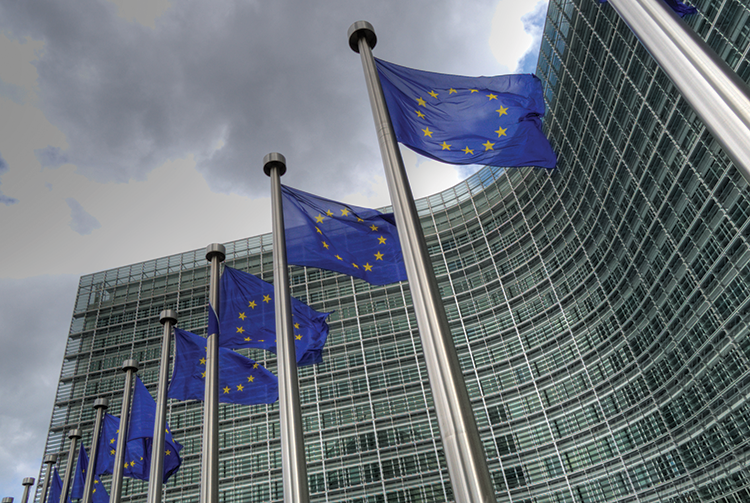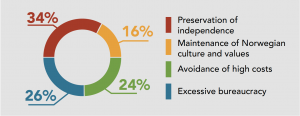Nyhet! Vi har lansert ny nettside. Del gjerne feedback enten på epost eller på Jodel.
 Annonsere?
Annonsere?
Nyhet! Vi har lansert ny nettside. Del gjerne feedback enten på epost eller på Jodel.
 Annonsere?
Annonsere?

In a recent survey the vast majority of Norwegian NHH students are against an EU membership. Are there still legitimate reasons for Norway to join the EU?
In the framework of the two referendums in 1974 and 1992, the people in Norway decided against the EU accession and even today the majority of the Norwegians seems to reject an EU membership. On Monday, September 10, 2018, there was an anonymous survey conducted at NHH, asking 64 randomly picked Norwegian NHH students the question whether they would like Norway to join the EU if there was a referendum today. The results showed that about 78 percent of the respondents would vote against and about 8 percent for joining the EU, whereas about 14 percent were not sure. Even if it is important to mention that the survey was not representative, it can be concluded that the vast majority of Norwegian NHH students are against the EU membership.

Norway’s status
Basically, Norway’s current status corresponds to the one of an EU member, excluding obligations in the areas Common Agriculture and Fisheries Policies, Customs Union, Common Trade Policy, Common Foreign and Security Policy, Justice and Home Affairs and Economic and Monetary Union (EMU). On the other hand, Norway does not have formal access to the EU decision making process and is only able to give input during the preparatory phase.
Norway gained a lot of advantages from the current special status as a member of the EEA and not of the EU. For instance, there is no obligation for Norway to share its fishing resources with other countries because the Common Fisheries Policies are excluded from the agreement. Moreover, Norway’s legislation is formally independent of the EU bureaucracy and the monetary policy and currency are also sovereign.
Reasons for not joining
According to the survey, the main reason for not becoming an EU member is the preservation of independence, as stated by about one third of the 50 participants who rejected the membership. Obviously, that is reasonable because Norway’s freedom has often been restricted in history due to occupations by other countries. However, the second most popular reason is the avoidance of high costs, which is basically groundless, because according to The Guardian, Norway’s per capita contributions to the EU institutions right now are
almost as high as the ones of a regular EU
member. Excessive bureaucracy, which also got almost one fourth of the votes, seems to be a legitimate reason for no EU accession. On the other hand, one has to consider that the EU institutions have to find a consensus across 28 diverse sovereign countries on taking actions and creating new legislation. In fact, according to Nordic Business Insider, "Norway does not formally participate in Brussels decision-making but has incorporated around 75% of EU law into its national legislation". Therefore, one could argue that the Norwegians are actually highly dependent on the EU legislation even if they have no influence on it (this also counts for the Brexit
negotiations).
Reasons to join
After a detailed investigation of most of the commonly given reasons against joining the EU, one finds a lot of contradictions within the arguments because the connections between Norway and the EU are already deeper and more wide-
ranging than most people would expect. Of course, there are a lot of good reasons for maintaining the status quo, but there are also several for an EU accession. Especially now, in the framework of the Brexit, it would be an important and strong sign for the rest of Europe if Norway would support the idea of the European Union by becoming a member and actively taking responsibility for the EU decisions as a decision maker instead of a taker. Norway needs a strong EU, both for economic as well as for peace political reasons. At the same time, the strength of the EU could be recovered by the accession of a strong new member like Norway.